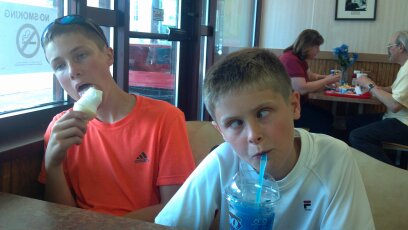Nobody should have to feel completely lost and out of control, no matter what their circumstances. There are a tremendous number of things in your life that you have partial 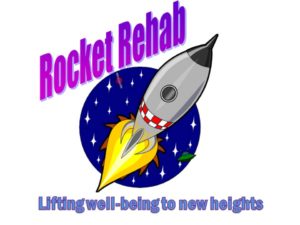 or complete control of, and when you practice all of those and put some effort into them, they can make you feel physically better than many of those pills or shots that they wave in front of you and psychologically better than you were before you were diagnosed.
or complete control of, and when you practice all of those and put some effort into them, they can make you feel physically better than many of those pills or shots that they wave in front of you and psychologically better than you were before you were diagnosed.
Guess what – psychological well-being and physical well-being are linked. It’s a proven fact. I’d call that a win-win and I don’t need a doctor to tell me differently. I know how I feel and you know how you feel and NOBODY can tell us otherwise!
First, the person, then the credentials and resume.
What makes me the best at what I do? It’s in my hard-wiring.
My top-five strengths, according to Gallop, are Restorative (problem solver), Individualization (what makes you tick), Ideation (interested in finding the root cause and why), Harmonization (find the common ground and steer away from blame), and 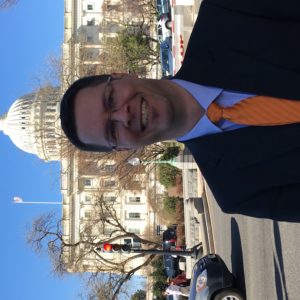 Empathy (can anticipate needs and identify).
Empathy (can anticipate needs and identify).
These don’t change. These are my strongest traits – how I’m made. Find someone else with those natural abilities!
Now the education: I studied nutrition during my undergraduate studies and have a master’s degree in biotechnology. I am a former marathoner and former Biological Safety Officer (high-level research oversight), an NIH mandated position, at a major research university. My neurologist has said that this is what makes me unique – high-level research knowledge but with the patient perspective. I wasn’t going to take this diagnosis lying down!
I used my training and research knowledge to tackle it. I’m in a much better place than I was before this came about, I’ve figured out how to achieve balance in my life, and not a day goes by without me continuing to work on it.
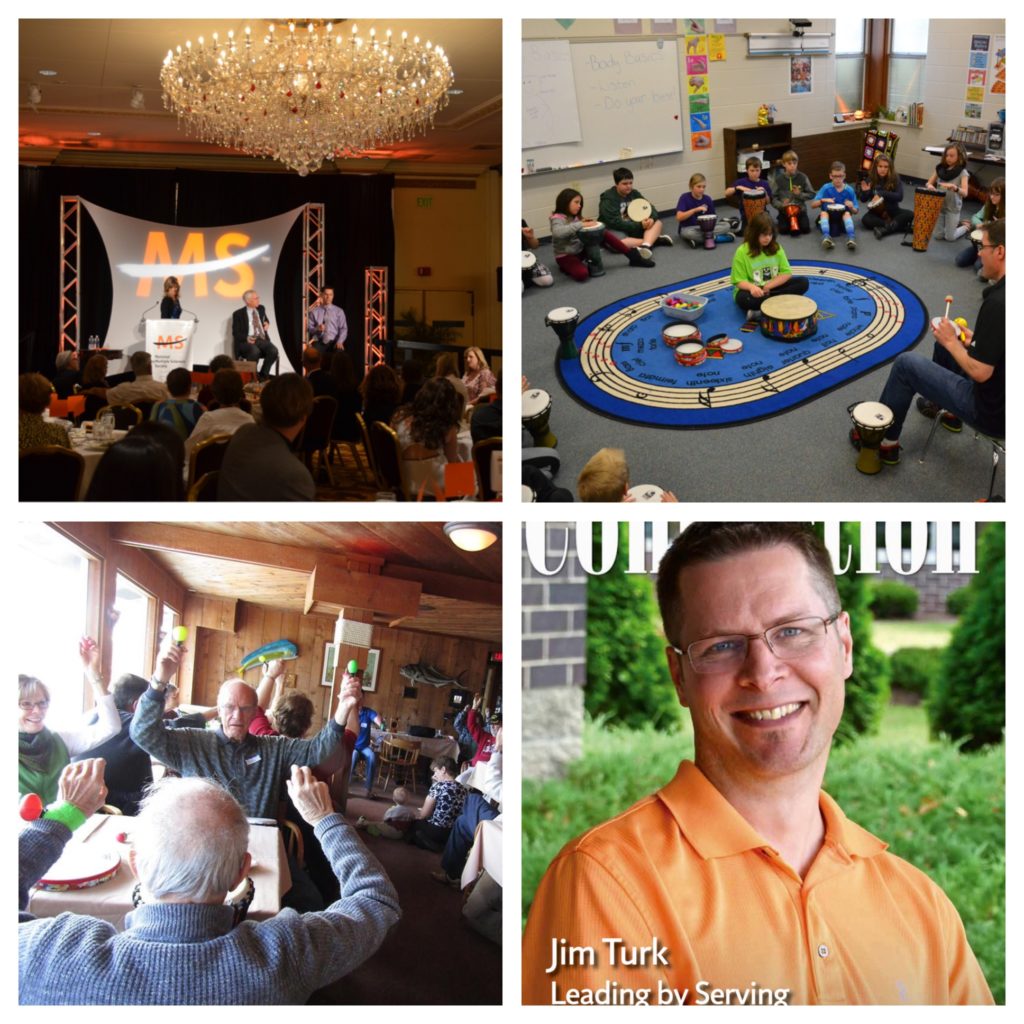 I often tell people that, while I’m a wheelchair user, have many other issues (like no fine motor skills, which prevents me from being able to write or play drum set), and am unable to work, I’m not sure I’d change anything.
I often tell people that, while I’m a wheelchair user, have many other issues (like no fine motor skills, which prevents me from being able to write or play drum set), and am unable to work, I’m not sure I’d change anything.
That sounds crazy but the truth is, without losing those things, I wouldn’t have made the decisions I have and wouldn’t spend so much time working with the MS Society, kids and adults with disabilities, and with people in assisted living, nursing homes, and in memory care units.
I love what I’m doing and how I spend my time!
Trusted information!
For you, this means that you’re getting the information from someone who has been devastated by a chronic illness, but that applied his education and interest to beat his disease. There is no speculation, here – I’m an authority. I know more about being afflicted with a chronic disease and the research process surrounding it than most of the people you will come into contact with. I have analyzed it and I have tried it out.
This site will change your life. That’s what I’m here to do.
Rather than bore you with details about my life, I’ve put the highlights are in the bullet-pointed list below.
-
- Lifelong drummer/performer (back in the day) and have been featured (with various bands) on TV, radio, charity events, and award shows: Band Video 1
- Worked in and studied nutrition while working towards my bachelor’s degree in Natural Science at UW-Madison
- Was a long distance runner, having completed two marathons (26.2 miles) in my thirties
- 2007: Received my master’s degree in biotechnology from the University of
Wisconsin-Madison (Go Badgers!) - 2008: Diagnosed with Multiple Sclerosis
- Fall 2008-Spring 2009: participated in a bizarre research study
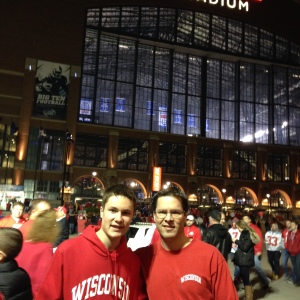
- 2009: Accepted a high-level research administration job at a major research university
- 2009 – present: Have traveled around the state giving talks advocating for research participation (and talking about my participation in a bizarre research study), talking about nutrition, and motivating people
- 2009 – present: volunteer for and co-chair the annual Walk MS event. Fund raise and volunteer for other MS Society events in my area
- May 2010: taught a class: “Clinical Trials 101” at the statewide “MS Summit”
- 2010 – present: TV, radio, periodical (e.g. Wall Street Journal and BBC) and live event interviews discussing my story
- May, 2012: Was part of a panel/key note speaker with my neurologist during two MS fundraising events in Madison and Milwaukee, WI

- January, 2015: was the subject of an MS documentary for an Emmy award winning series called “Bench to Bedside,” produced by The Foundation For Biomedical Research (FBR Media)
- March, 2015: was the subject of a news piece for MS Awareness Week (MS Awareness Week piece)
- May, 2015: Was the invited speaker and addressed the graduating UW-Madison, Master of Science in Biotechnology class
- 2014 – present – Have been giving presentations to grade schools and college students about my experiences with MS and MS/nutrition.
- 2014 – present: continue to work on not going backwards. I have figured out that there are a lot of reasons I am lucky!
- 2014 – present: helped teach UW-Madison Occupational Therapy students about life with MS
- Have attended several meetings and conferences on behalf of the National MS Society Wisconsin Chapter
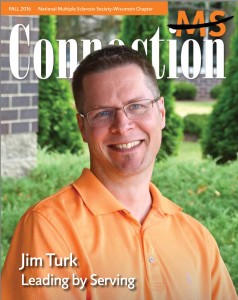
- Have traveled to Washington DC with the MS Society on multiple occasions to speak to legislators about concerns in the MS community
- 2015 – present: writer with posts published on many sites and magazines, including being on the cover of MS Connction in the fall of 2016
- In April of 2016 I stopped working and shortly thereafter, began leading drum therapy (largely because there was so much scientific evidence touting the benefits of group drum therapy to all kinds of groups. I love it!
- Now I just spend most of my time doing a plethora of volunteer work for the National MS Society (much of which is political – as an example, I’ve been to Washington DC with them several times and even spoke as part of a research panel at a conference there). I go to my state capitol on a regular basis as well. I co-chair my local Walk MS committee, and do group drum therapy for a number of groups (nursing homes, memory care, VSA Wisconsin which brings arts and music to people with disabilities), and much more!
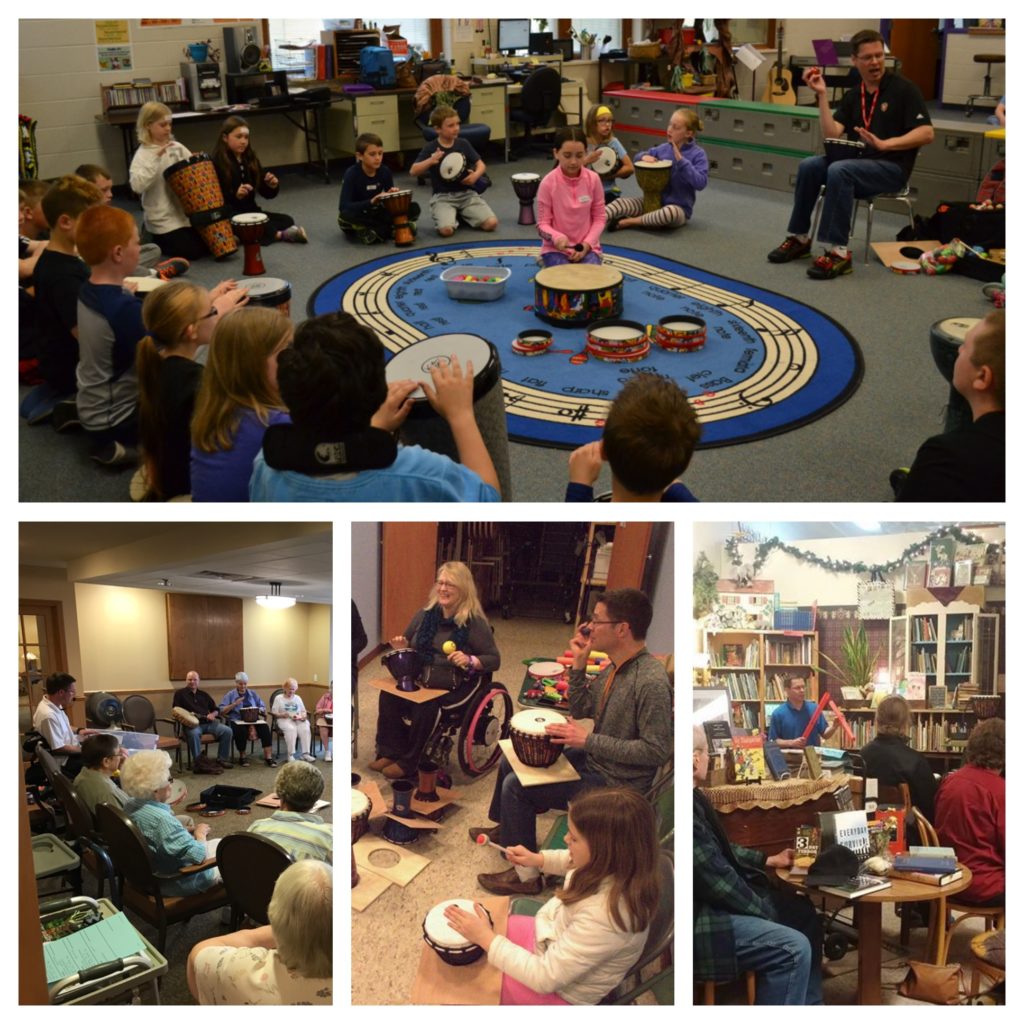
Find your passion
I am big into finding your passion. I say this not to be all “holier than thou,” but because if you’re passionate about what you’re doing, you feel better. I know this because it’s something that I personally experienced a year after being diagnosed. I was down-in-the-dumps and suddenly put in charge of a department that was in a tailspin. We’re talking bad – and international attention. At first this seemed like it would just be stress, but it turned out to be a strength and passion of mine. To put a group together with great chemistry, great skills, great knowledge, and make the department better, made me feel better mentally and physically.
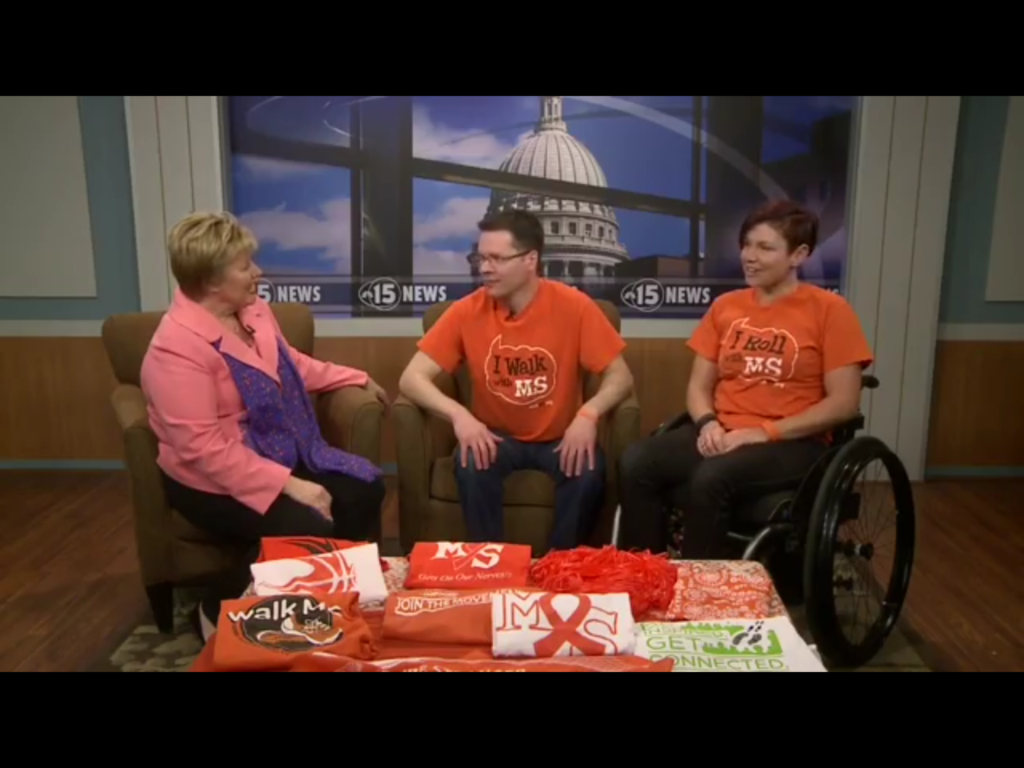
I’ve since discovered a number of other things that I’m passionate about and get the same results. I want to do that for you. By sharing my knowledge, what’s worked for me and what hasn’t, and maybe helping to give you an idea about how to approach your situation, you can be in a better place, mentally and physically. I’m looking to give you something that works better than drugs. This is my passion. We can work together and share ideas and have the tools that will last a lifetime, or you can just sit on your hands and wait to be rescued. I’ll take the former.
I’ve said already that I love what I do. The decisions that I’ve made and the direction I have gone wouldn’t have happened without MS. That’s not me trying to be positive – it’s the truth!


